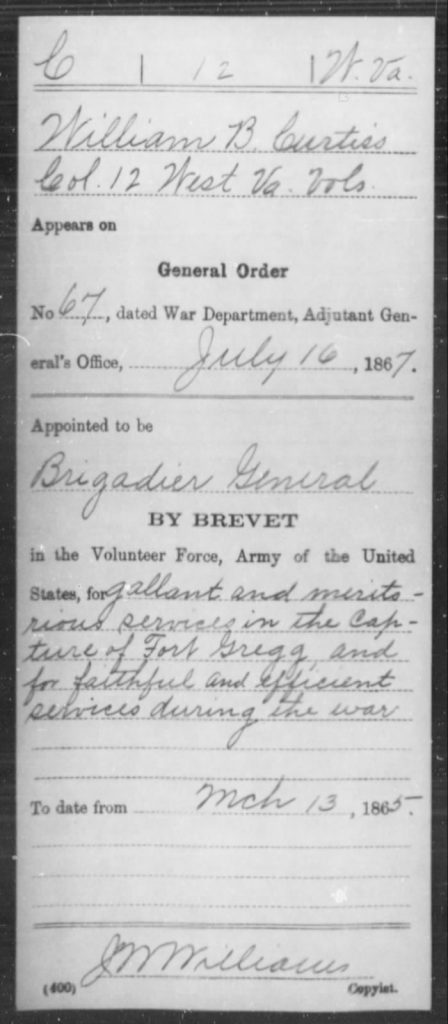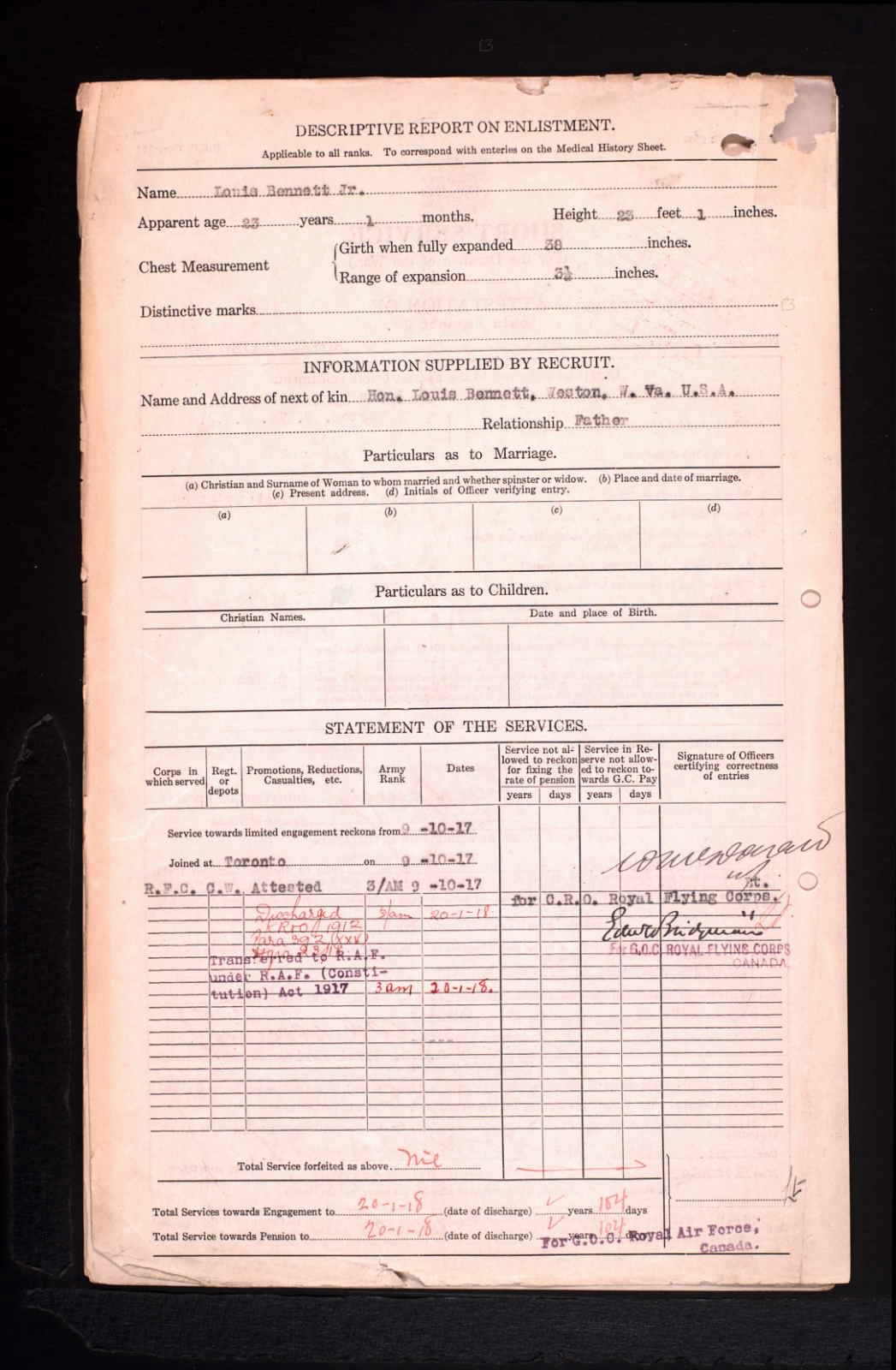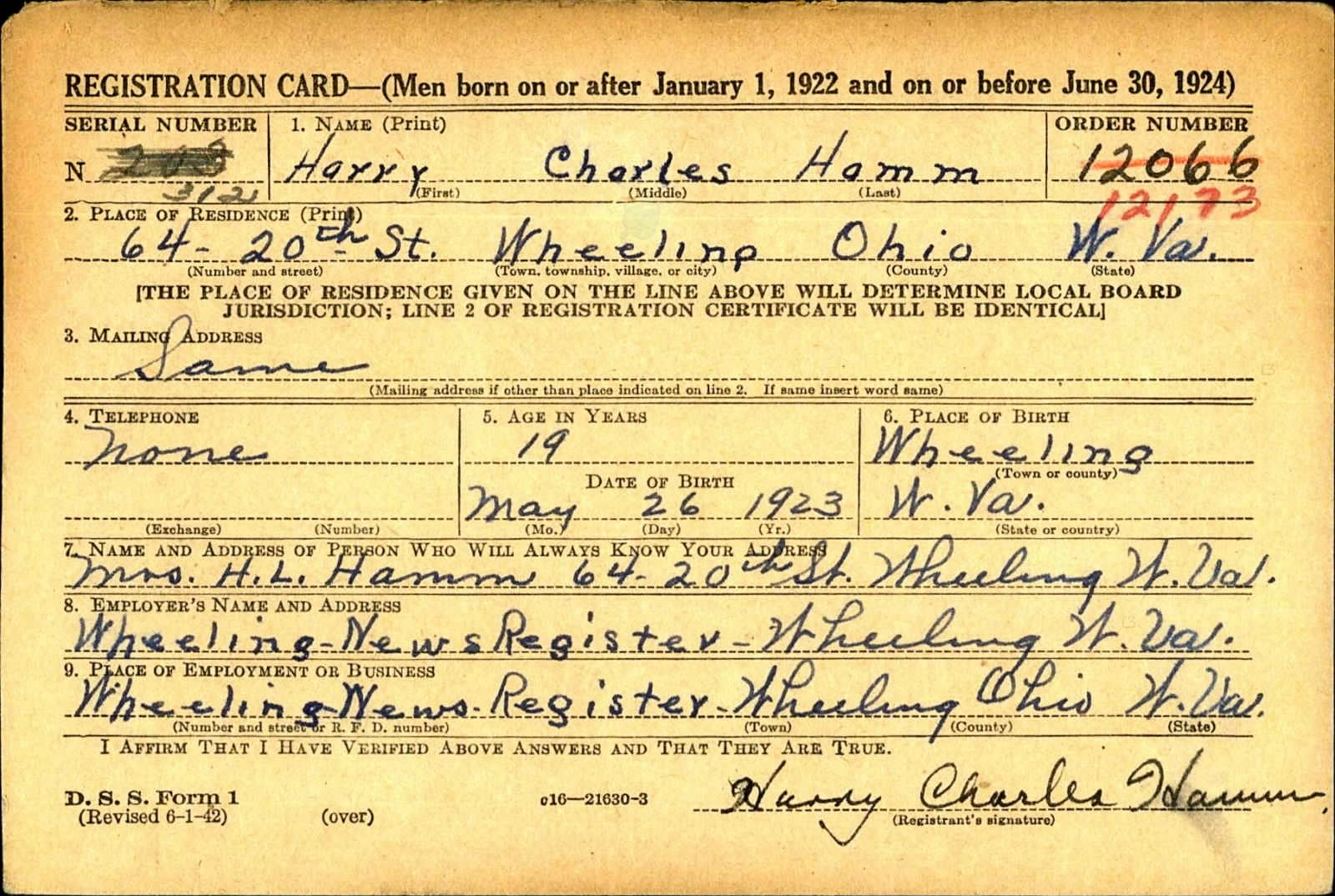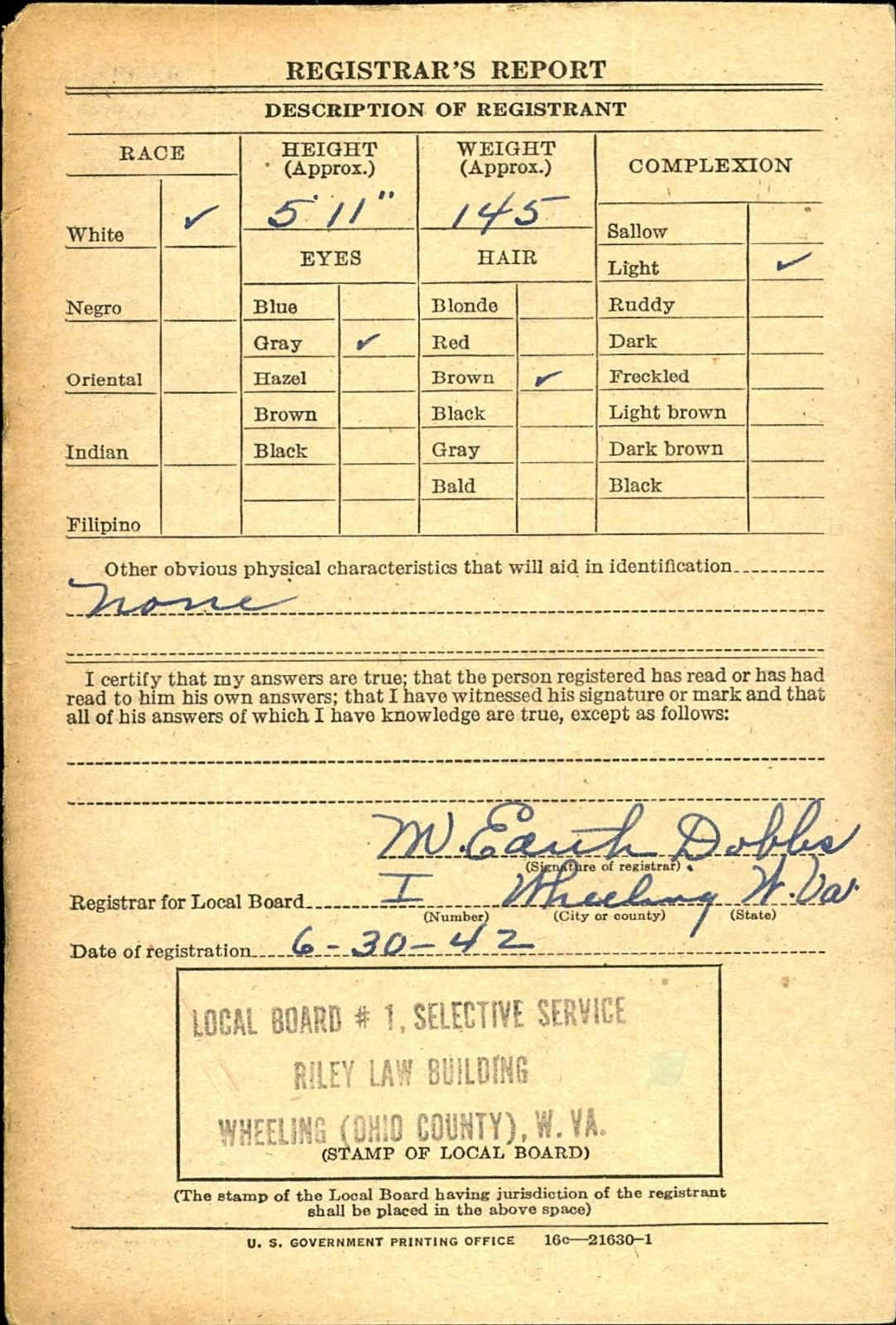Click here for part 1, part 2, or part 3.
In this fourth and final installment of our genealogical research series, we are going to cover a few more assorted record types you can use to find your ancestors. These include both local and national resources like newspapers, city directories, school yearbooks, family histories, and military records.
Newspapers
Local newspapers can be a wonderful way to fill in gaps in your family history and get a fuller picture of your ancestors’ lives. The OCPL has digitized a sizable chunk of The Wheeling Intelligencer (1852-present, with some gaps) and is in the process of adding more of it and Wheeling News-Register to its digital collection. The digitized collection can be searched by name or keyword or browsed by newspaper title or year. For more information about the project and related resources, check out the “Newspapers” link in the resources list at the end of the article.
To give an idea of how newspapers can supplement your search, here are three clippings from the Wheeling Intelligencer about William A. Turner, Wheeling’s first African American police officer (whose biography is available through the OCPL). The first clipping, from The Wheeling Daily Intelligencer, April 4, 1902, bears some sad news: Turner’s young son had passed away. If one was researching the Turner family and puzzling over the disappearance of William Turner between the 1900 and 1910 census, this clipping would explain his absence. At the time of the 1910 Census, William Turner would have been about 20-21 years old, so a researcher’s first guess might be that he simply moved out. However, this clipping tells us this is not the case.
Another set of clippings tells us about Turner’s police service, sudden illness, and recovery. The first tells us that Turner took ill while on duty and also mentions that he is the police department’s only “colored” officer. The second, about 4 months later, reports that Turner has returned from a Virginia health resort feeling much improved.

Though Turner was a noteworthy citizen and likely had more press because of it, it is nevertheless probable that you will find similar stories about your own ancestors. For example, I found a blurb in the Wheeling Intelligencer about a surprise birthday party for my great-grandmother with a list of attendees.
Newspapers can help answer some of those needling questions about an ancestor’s “disappearance” from the census, tell you where they lived and how they made a living, and provide general “slice of life” stories.
City Directories
Like newspapers and the censuses, city directories can give you an idea of where your ancestors lived and worked during a certain period of time. Directories can be used as a supplemental resource for the missing 1890 census as they will provide some of the information you might find in the census. Printed directories can be found in the OCPL’s Wheeling Room or through Ancestry, a genealogical database that can be accessed from the library building.
Yearbooks
Yearbooks are a great way to get a fuller idea of what your ancestor’s life was like. Aside from providing pictures, yearbooks also typically list students’ extracurricular activities and accolades. Many local high schools and colleges, including Linsly, Wheeling Park, Mount de Chantal Visitation Academy, Wheeling Jesuit, and West Liberty, have yearbooks in the OCPL Wheeling Room. Some, such as Bethany College, have also digitized their yearbooks and made them searchable.
Family Histories
If you are one of the lucky few to come from a prominent and/or trailblazing local family, an ancestor or local historian may have already done a great deal of work for you! Family histories are yet another genealogical resource that can found in the OCPL Wheeling Room, including (but certainly not limited to!) the Curtis, DuBois, Frazier, McClure, Steenrod, and Zane families. It may also be worthwhile to check other local libraries and archives: it is common practice for such institutions to retain materials relating to local genealogy and history. These resources are harder to find online and will most likely have to be accessed in person and by appointment, but consulting such sources could also save you a lot of time in the long run.
Military Records
For the genealogist, there are several types of military records that can aid in your family search. To find military records, I highly recommend Fold3, an easy-to-use and comprehensive database available through the OCPL. Like the genealogical databases mentioned in part 3, Fold3 can be accessed outside of the library with a OCPL card. Fold3 has digitized, searchable military records dating back to the Revolutionary War. These records include muster rolls, pension indices, draft cards, etc. As with most genealogical records, the level of detail will differ depending on the time period and conflict being searched.
For an ancestor that served in the Civil War, you may find records like the one pictured below. A search on Fold3 for General William Baker Curtis of West Liberty came back with several results, including a muster roll. This one record gives the researcher a considerable amount of information, including Curtis’s rank, company number, regiment, and date of effect.

To get an idea of how records from international wars differed from those fought on U. S. soil, below are two records for Louis Bennett, Jr. who served in WWI and was “West Virginia’s only World War I flying ace.” His descriptive report of enlistment gives his age, height, and even chest measurements, as well as the name and address of his next of kin. Bennett’s attestation includes information like marital status, citizenship, and prior military service.
Lastly, below are the registration card and registrar’s report for Harry Hamm, a longtime editor for the Wheeling News-Register. Even if your ancestor never served, draft cards can be immensely helpful when trying to figure out where a male ancestor worked, lived, or if he married. Marital status was not asked but can be inferred: for the line “name and address of person who will always know your address” an unmarried man will likely list a parent while a married man would list his wife. The description of the registrant is very interesting as well as it will tell you your ancestor’s height, weight, race, and complexion.
Some military records, particularly those associated with the Civil War, can be found in print format in the OCPL’s Wheeling Room. These include muster rolls, unit histories, soldiers’ diaries and letters, etc. Records associated with the Revolutionary War, the Spanish-American War, and other wars fought on American soil can be found in the Wheeling Room as well.
What other records have you found to be helpful in your own genealogical search? Let us know in the comments!
References
Duffy, Sean. “William Alexander Turner.” Ohio County Public Library, https://www.ohiocountylibrary.org/history/biography-william-alexander-turner/5272.
“Harry Hamm.” Ohio County Public Library, https://www.ohiocountylibrary.org/history/5242.
Julian, Charles A. “Louis Bennett, Jr.” Ohio County Public Library, https://www.ohiocountylibrary.org/history/5175.
Laker, Joseph. “Gen. William Baker Curtis: West Liberty’s War Hero.” The Intelligencer, 28 Apr. 2018, https://www.theintelligencer.net/news/community/2018/04/gen-william-baker-curtis%E2%80%88west-libertys-war-hero/.
“Newspapers.” Ohio County Public Library, https://www.ohiocountylibrary.org/collection/newspapers/7065.
“Patrolman Turned Is Suddenly Taken Ill.” Wheeling Intelligencer, 7 Jan. 1928, p. 5. Retrieved from http://ohiocountywv.advantage-preservation.com/
“A Sad Death.” Wheeling Daily Intelligencer, 7 April 1903, p. 1. Retrieved from http://ohiocountywv.advantage-preservation.com/
“William Turner Returns From Va. Health Resort.” Wheeling Intelligencer, 30 May 1928, p. 16. Retrieved from http://ohiocountywv.advantage-preservation.com/







